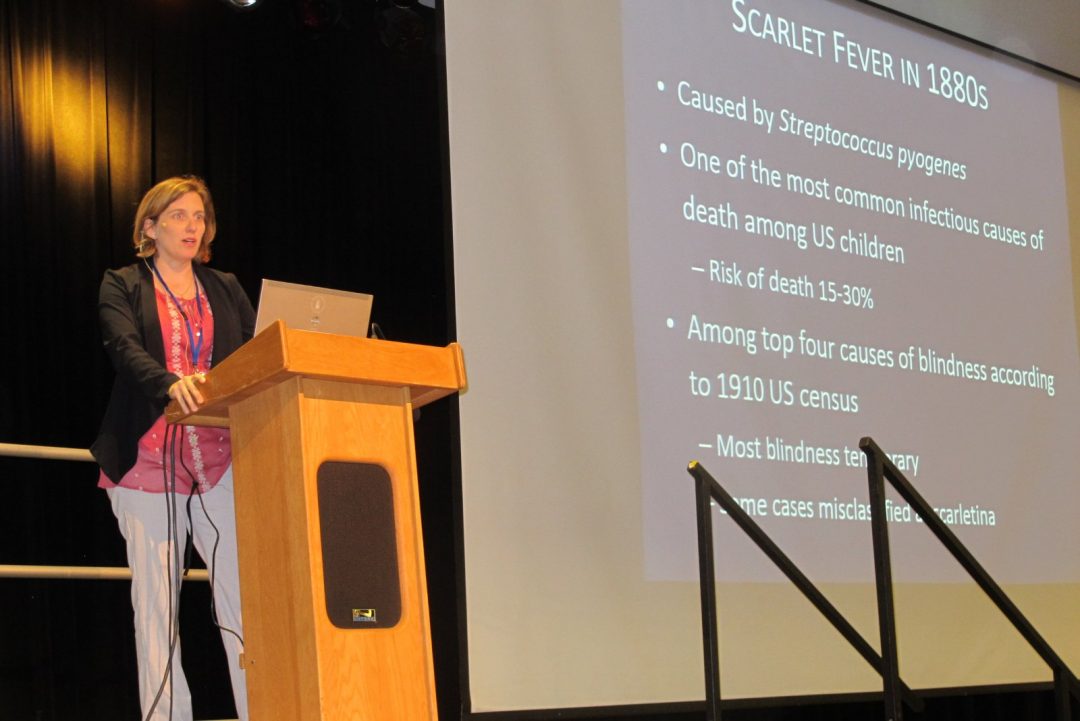Beth Tarini, M.D., shares her deductions on scarlet fever and why that did not blind Mary Ingalls

I am at a conference of Laura Ingalls Wilder enthusiasts. It’s called Laurapalooza. This name injects a lighter air to reality. Roughly 160 followers of the humble inspiration oin the Little House books research every lead they find leading toward what actually happened to the Ingalls family (Laura’s parents, aunts, uncles, grandparents, sisters, and more), Wilders, and—yes—Laura and Almanzo’s daughter, Rose Wilder Lane. I expected that some of these diehard enthusiasts for Laura’s would greet the news that I’m writing about the truth of Laura’s collaboration with Rose on the Little House series as if I were a two-headed monster, or more likely a killjoy. Not so. Everyone I tell about my book Libertarians on the Prairie wants a copy. (Which will be available next August.)
We don’t all see the situation the same. Many people here at South Dakota State University believe that Laura’s writing talents were creative genius and that Rose didn’t always edit wisely, or that Rose stole from Laura’s memoir Pioneer Girl, diluting the power of those memories. Laura wrote beautiful descriptions of the land she witnessed from covered wagons and log cabins across the Upper Midwest. She intimately understood the patterns of an outdoor life. She never forgot those things. But Laura struggled mightily finding themes and keeping the thread of those themes driving forward her novels. For that, she desperately needed Rose. Laura also believed that as long as she wrote down what was true or felt true, the rest would take care of it. Rose, often without consulting Laura, made up many scenes out of whole cloth to strengthen the stories. I am getting into this in my book.
But what matters here is: fans are talking about Rose. Fans are eager to hear more about Rose. They’re as eager to understand Rose’s role in the Little House books and the family legacy as they are to discover where Laura’s father Charles Ingalls grew up, or how the threshing machines worked, what illness afflicted Mary Ingalls, making her go blind in the late 1870s, or why the locusts that ate the Ingallses’ wheat crops for two seasons are now extinct.
Beth Tarini presented her findings, published in a paper last year, concluding that Mary Ingalls was blinded by viral meningoencephalitis. She was senior author of a study a few years ago. The findings appeared in the journal Pediatrics.
aper last year, concluding that Mary Ingalls was blinded by viral meningoencephalitis. She was senior author of a study a few years ago. The findings appeared in the journal Pediatrics.
